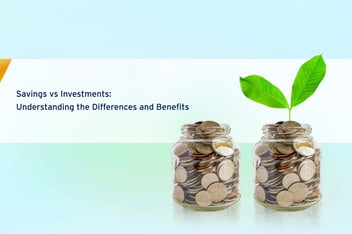
How to Make Money in a Dwindling Economy
Author Taiwo Temitope-Adesope
Despite what the forecast says, you can make money and become rich in a dwindling economy.
From the gig economy to passive income, diversifying your earnings can be limitless if you know just where to look. By focusing on increasing your income, managing your finances wisely, and investing strategically, you can position yourself for financial success even in a challenging economic climate.
Nigeria's economic uncertainty not only presents challenges, it also creates opportunities for individuals and entrepreneurs to innovate, adapt, and thrive.
While there's no guaranteed path to riches, especially in a dwindling economy, there are strategies to increase your income and build wealth in challenging times.
Investing Strategies for Economic Downturns
Investing during economic downturns requires a careful and strategic approach to mitigate risks and capitalize on opportunities.
Here are some investing strategies you may want to consider:
- Diversification
Diversifying your investment portfolio across different asset classes, industries, and geographic regions can help spread risk and minimize losses during economic downturns. Allocate your investments across stocks, bonds, real estate, commodities, and cash equivalents to balance risk and return.
- Defensive Stocks
Defensive stocks are companies that tend to perform well during economic downturns because their products or services are in demand regardless of economic conditions.
Examples include utilities, consumer staples (e.g., food, beverages, household products), healthcare, and certain technology companies. Investing in defensive stocks can provide stability and income during downturns.
- Dividend-Paying Stocks
Dividend-paying stocks can provide a source of income during economic downturns, making them attractive investments for income-oriented investors. Reinvesting dividends can also help compound returns over time.
- Value Investing
Value investing involves identifying undervalued or discounted stocks with strong fundamentals and growth potential. During economic downturns, market volatility may create buying opportunities for value investors to acquire quality stocks at attractive prices.
- Alternative Investments
Alternative investments such as real estate, and commodities can serve as portfolio diversifiers and hedges against inflation and market volatility.
During economic downturns, consider allocating a portion of your portfolio to alternative assets that have a low correlation with traditional stocks and bonds.
- Cash Reserves
Maintaining cash reserves or liquidity can provide flexibility and enable you to take advantage of investment opportunities as they arise during economic downturns.
Keep a portion of your portfolio in cash or cash equivalents such as money market funds or short-term bonds to meet short-term expenses or capitalize on market dislocations.
- Long-Term Perspective
Maintain a long-term perspective and avoid making impulsive decisions based on short-term market fluctuations. Stay disciplined in your investment strategy, focus on fundamentals, and resist the temptation to time the market. History has shown that markets eventually recover from downturns, and patient investors are rewarded over the long term.
- Regular Rebalancing
Regularly review and rebalance your investment portfolio to ensure that it remains aligned with your financial goals, risk tolerance, and investment time horizon. Rebalancing involves selling assets that have become overweight and reinvesting the proceeds into underweight assets to maintain your target asset allocation.
By implementing these investing strategies and remaining disciplined and patient, you can navigate economic downturns successfully and position yourself for long-term financial success. Remember to focus on diversification, quality, and value, and avoid reacting emotionally to short-term market fluctuations.
Money-Making Opportunities in Economic Uncertainty
Navigating economic uncertainty presents challenges, but it also creates opportunities for innovative individuals and entrepreneurs.
Here are some money-making opportunities to consider in an economic downturn:
- Agribusiness
Agriculture remains a significant sector of Nigeria's economy and offers numerous opportunities for investment and entrepreneurship.
Ventures such as crop farming, livestock rearing, poultry farming, or agro-processing will always be in high demand.
- Tech Startups
Nigeria's growing tech ecosystem presents opportunities for tech startups and entrepreneurs to develop innovative solutions to local challenges.
With the increasing adoption of technology and smartphones, there is a growing market for digital services and solutions in Nigeria.
- Real Estate
Despite economic uncertainties, real estate remains a lucrative investment opportunity in Nigeria.
Consider investing in residential or commercial properties, rental properties, or real estate development projects.
- Small Business Ventures
Small businesses play a vital role in Nigeria's economy and offer opportunities for entrepreneurship and wealth creation.
You could start a small business in sectors such as retail, hospitality, manufacturing, or services. Identify niche markets or underserved needs and develop business ideas that address those gaps.
Need a business loan to jumpstart your business dream? nairaCompare helps you compare loan options from top lenders in Nigeria. Find the best interest rates and repayment terms to fit your budget!
-
Freelancing and Remote Work
With the rise of remote work and the gig economy, freelancing offers opportunities for individuals to earn income online. Freelancing in areas such as writing, graphic design, programming, digital marketing, or virtual assistance could be profitable.
-
Education and Training
Education and training services are in demand in Nigeria, especially with the growing youth population and the need for skill development.
-
Healthcare Services
Healthcare remains a priority sector in Nigeria, and there are opportunities for entrepreneurs to provide healthcare services or solutions. Focus on providing affordable and accessible healthcare solutions to meet the needs of underserved communities.
-
Renewable Energy
Nigeria's energy sector presents opportunities for investment and innovation in renewable energy sources such as solar, wind, and biomass. With the country's energy challenges and the increasing focus on sustainability, renewable energy projects can be financially viable and socially impactful.
-
E-commerce
E-commerce is experiencing rapid growth in Nigeria, driven by increasing internet penetration and consumer demand for online shopping.
Consider starting an e-commerce platform, online marketplace, or delivery service.
-
Consulting and Professional Services
With Nigeria's complex business environment, there is a demand for consulting and professional services in various sectors.
You may want to start a consulting firm or offer specialised services such as legal, accounting, financial advisory, or business consultancy.
By identifying market needs, leveraging your skills and resources, and staying agile in your approach, you can seize money-making opportunities and build successful ventures.
Become Rich in a Dwindling Economy
Becoming wealthy in a dwindling economy requires strategic planning, resilience, and innovative thinking.
Here are some tips to help you build wealth in a struggling economy:
-
Invest Wisely
During economic downturns, asset prices may decline, presenting buying opportunities for savvy investors. Consider investing in undervalued assets such as stocks, real estate, or commodities with strong long-term growth potential. Diversify your investment portfolio to reduce risk and maximize returns.
-
Focus on Income Generation
In uncertain economic times, prioritise generating multiple streams of income to increase financial stability and resilience.
-
Cut Expenses
Review your expenses and identify areas where you can cut costs and reduce unnecessary spending.
Trim discretionary expenses, renegotiate contracts or subscriptions, and prioritize needs over wants. Adopt frugal living habits to stretch your dollars further and increase your savings rate.
-
Emergency Fund
Build an emergency fund to provide a financial safety net during times of economic uncertainty. Aim to save enough to cover three to six months' worth of living expenses to protect yourself against unexpected job loss, medical emergencies, or other financial setbacks.
-
Education and Skills Development
Invest in your education and skills development to enhance your earning potential and marketability in a changing economy.
Acquire new skills, certifications, or qualifications that are in demand in your industry or explore opportunities for career advancement or entrepreneurship.
-
Stay Informed and Flexible
Stay informed about economic trends, market conditions, and industry developments to make informed decisions about your finances and investments. Remain flexible and adaptable to changes in the economic landscape, adjusting your strategies and priorities as needed to capitalize on emerging opportunities.
-
Network and Build Relationships
Networking is essential for success in any economy. Cultivate relationships with mentors, peers, and industry professionals who can provide guidance, support, and opportunities for growth.
Collaborate with like-minded individuals, attend networking events, and participate in online communities to expand your network and access valuable resources.
-
Mindset and Persistence
Cultivate a positive mindset and resilience to overcome challenges and setbacks on your journey to wealth. Stay focused on your long-term goals, remain disciplined in your financial habits, and persevere in the face of adversity.
By implementing these strategies and remaining proactive and adaptable, you can position yourself for success and build wealth even in a dwindling economy. nairaCompare can help you achieve long-term financial sustainability, diversify your income sources, and seize opportunities for growth and prosperity
.
About Author

Taiwo Temitope-Adesope
Taiwo is a passionate storyteller and strategist dedicated to empowering women and crafting compelling narratives. A First-Class graduate in Mass Communication from Covenant University, she specializes in writing, public relations, and digital marketing. As a Content Manager at Suretree, she drove a 50% increase in web traffic through SEO and boosted website engagement by 60% in just four months. Her leadership experience includes serving as Public Relations Officer for the Covenant University Student Council and contributing to impactful volunteer initiatives. With expertise in strategic thinking and business acumen, Taiwo continues to create stories that inspire confidence and imagination.
.png?width=1615&height=444&name=nairaCompare%20Christmas%20Full%20Logo%20(White%20%26%20Yellow).png)
.png?width=1615&height=444&name=nairaCompare%20Christmas%20logo%20(PNG).png)









